#borisoglebsky
Explore tagged Tumblr posts
Text
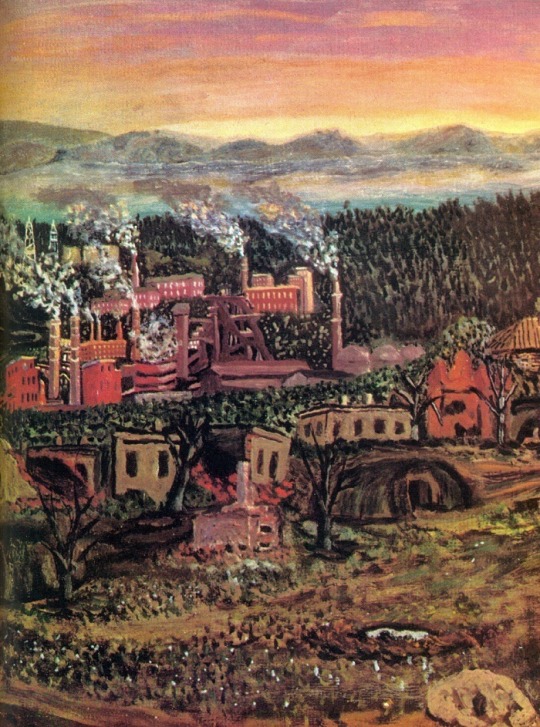
Borisoglebsky, "Return from the Front", 1975
150 notes
·
View notes
Text
Russia. Borisoglebsky. Borisoglebsky Monastery Борисоглебский. Ростовский Борисоглебский монастырь
#2011#autumn#borisoglebsky#september#борисоглебский#борисоглебский монастырь#осень#сентябрь#стена#монастырь#wall#monastery#Borisoglebsky Monastery#Россия#Ярославская область#Russia#Yaroslavl Oblast#крепость#fortress#Canon#Canon EOS 550D#flickr#russian tumblr#русский tumblr
42 notes
·
View notes
Photo

Борисоглебский монастырь, Торжок / Borisoglebsky Monastery, Torzhok, Russia https://aramis7.livejournal.com/4206544.html #2019 #июнь #лето #места #россия #торжок #храмы #церкви #June #summer #places #Russia #Torzhok #churches #соборы #cathedrals #Борисоглебский монастырь #монастыри #Borisoglebsky Monastery #Monasteries (at Торжок. Борисоглебский Монастырь.) https://www.instagram.com/p/B8uF-bOpt4e/?igshid=1nzpr07qj8vag
#2019#июнь#лето#места#россия#торжок#храмы#церкви#june#summer#places#russia#torzhok#churches#соборы#cathedrals#борисоглебский#монастыри#borisoglebsky#monasteries
0 notes
Photo

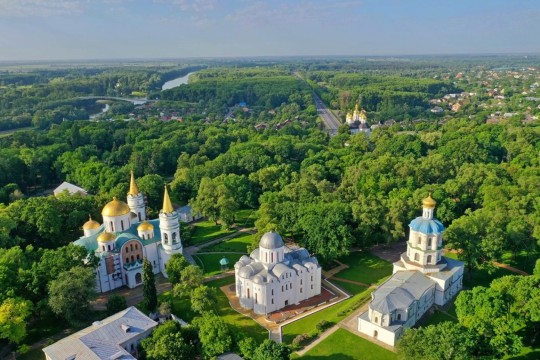
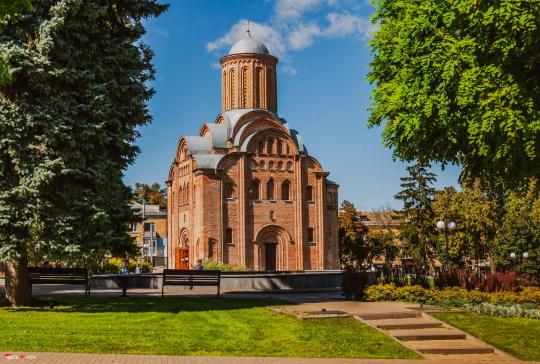


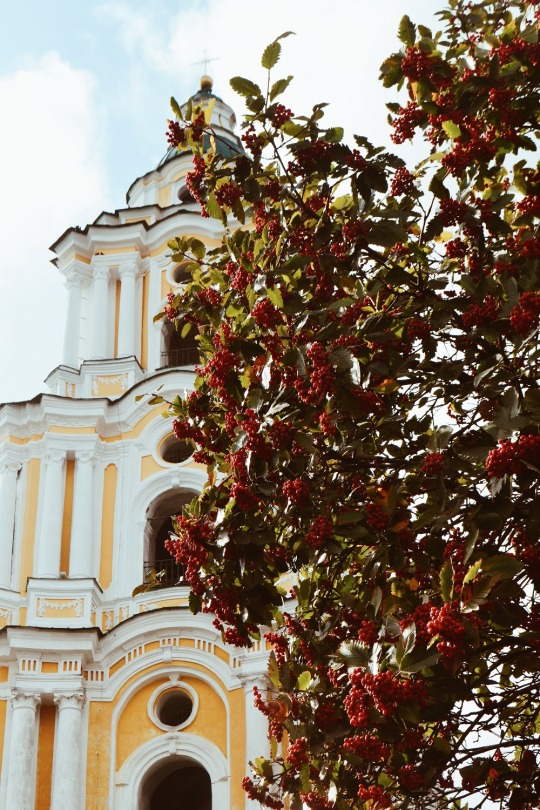
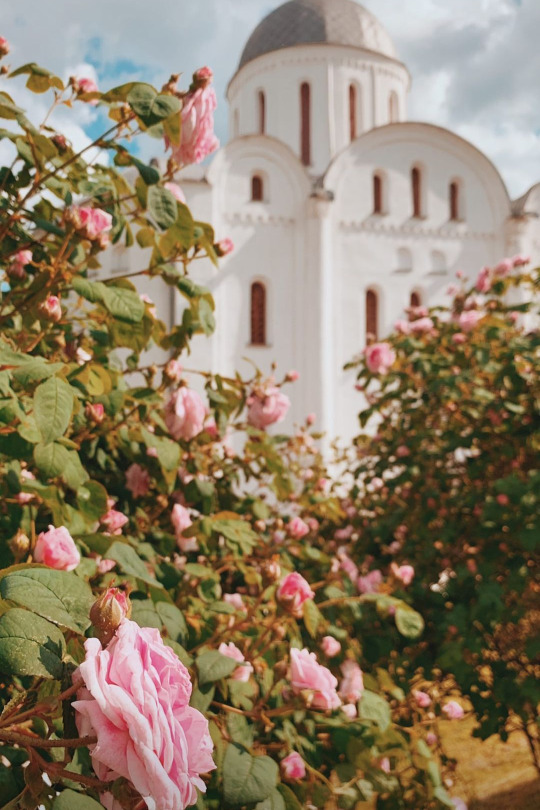
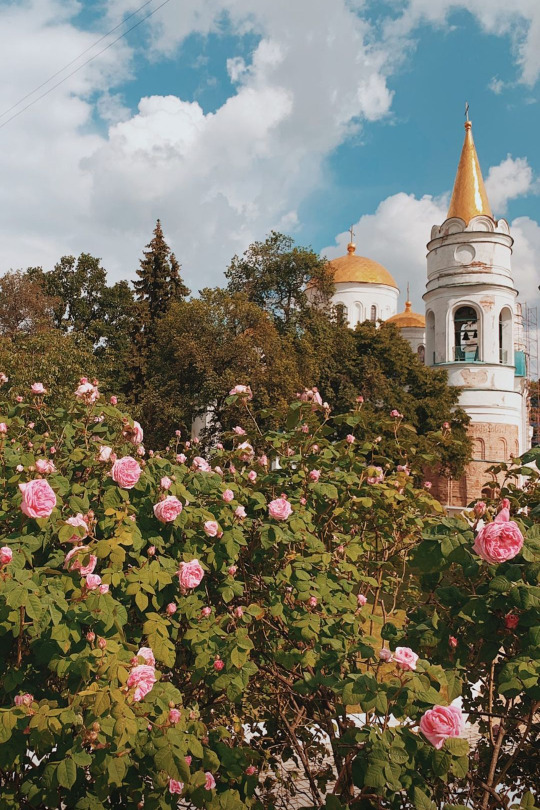
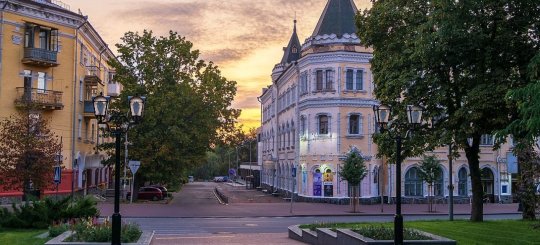

... the one thing that never changes is time.
Empires shall fall into the see Gusty winds from all sides will be blowing us around Fortresses and bunkers will become of no use to them Who will you be running to as hard as you can Who will you beg to, don’t keep silence Talk to me With whom shared memories will flow as drawings in the eyes
Will it be me Tell me if it will be me Will it be me Just tell me
As the sun doesn’t rise, it won’t warm us from above Who will come to your mind Whom will you shout for a last time Don't leave me here, take me with you Who’s your one and only Though you live, though you die What would you call for a game and what for a relationship?
So in such a manner now check all your principles Down with screaming, arrogance, fame, assuredness Whether I am a star Or I am your eclipse Or I just created you in my imagination
Empires shall fall, Boombox, November 19, 2021 Імперії впадуть, Бумбокс, Листопад 19, 2021
#ukraine#ukrainian architecture#chernihiv#hero city#the Desna River#chernibog#black god#eastern europe#the kievan rus#11th century#architectural monuments#Pyatnytska Church#Borisoglebsky Cathedral#Eletsky monastery cathedral#the Eletsky Monastery#Opera and Drama Theatre#shevchenko#spring#hometown#hometown glory
13 notes
·
View notes
Photo


Yaroslavl region, Borisoglebsky district, Schurovo village. «The path of Lenin».
#russia#yaroslavl#region#borisoglebsky#district#village#countryside#the path of lenin#vladimir lenin#chirch#orthodox
167 notes
·
View notes
Text
7 Magical Places
Radovljica, Slovenia
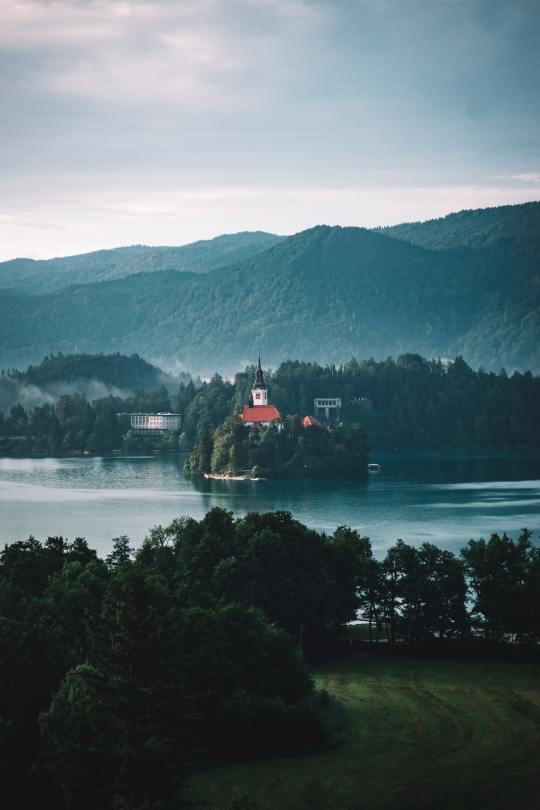
A medieval town with a moat and views of the Karavanke and the Julian Alps, Radol-ca is now known as Sweet Radovlija (Ladolja). Beekeeping and honey traditions are complemented here. It has become a veritable capital of beekeeping and chocolate.
2. Ebensee, Austria
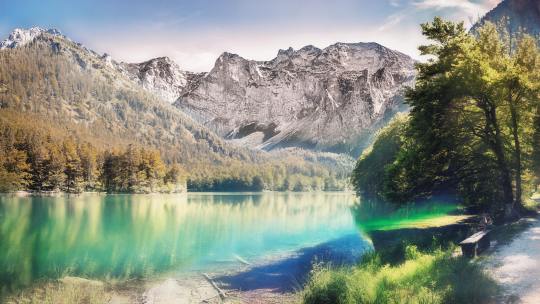
There are many sights and excursion destinations around Ebensee. Whether hiking or biking, Ebensee is a region with several hidden gems waiting to be explored and visited.
3. Boris And Gleb Monstery, Russia
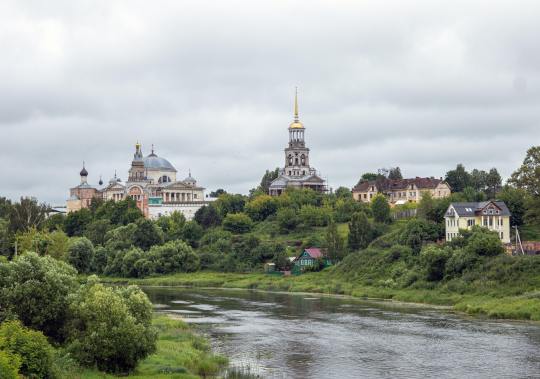
Boris and Gleb Monastery, founded in 1363, is located in the village of Borisoglebsky, Yaroslavl Region, on the Rostov-Uglich Road, 76 km southwest of Yaroslavl, part of the famous Golden Ring of Russia tourist route. It is an Orthodox monastery.
4. Mont Saint-Michel, France
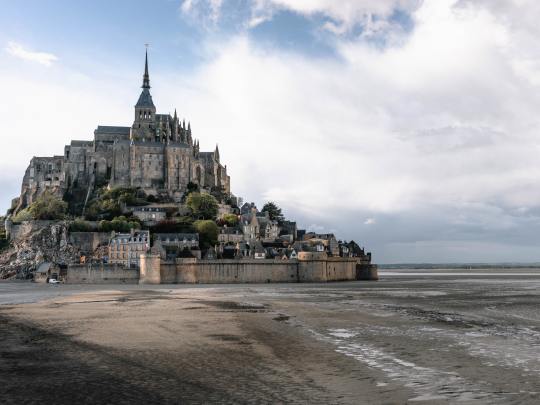
Mont Saint-Michel is one of Europe's most fascinating heritage sites, rich in history and wonder. Visitors will be dazzled by this exquisite Gothic landmark, a gem of medieval architecture perched on a scenic coastline.
5. Kamienna Gora, Poland
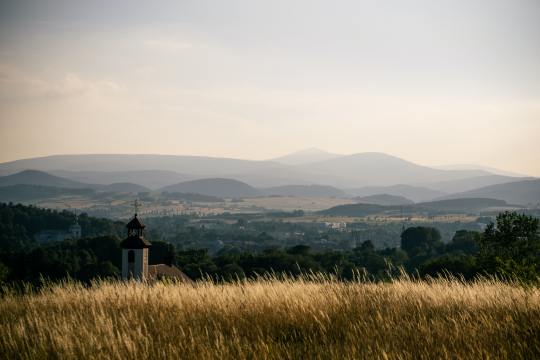
The top attractions to visit in Kamienna Gora are:
Arado – Zaginione Laboratorium Hitlera
Krzeszów Abbey
Muzeum Tkactwa W Kamiennej Gorze
Lakes of Color
Antonówka - Podziemia, Które Nie Istnieją
6. Uden, Netherlands
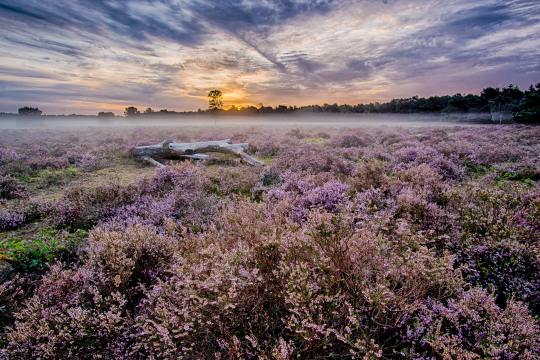
Uden is a city in North Brabant, Netherlands. There are many popular attractions worth visiting, such as the Sterrenwacht Orion Uden and the Plattelandsmuseum Duinhove.
7. Cappadocia, Turkey

Famous for its unique rock formations and amazing hot air balloon opportunities, the otherworldly landscape of Cappadocia is one of Turkey's most popular natural wonders.
#france#travel#top#turkey#poland#the netherlands#slovenia#painting#wanderlust#russia#nature#landscape#beautiful#beach#adventure#travelblogpost#blogger#road trip#vacation#fashion#sunset#clouds#sky#instaphoto#instagram#europe#architecture#rocks#hiking#appalachian trail
2 notes
·
View notes
Photo

Borisoglebsky monastery. In Soviet times, there was a maximum security prison here.
Torzhok, Tver’ rg., Russia
#tverskayaoblast#tverskaya oblast#tver' rg.#tver rg#tverskaya oblast'#tverskaya#russia#torzhok#church#monastery#small town#prison#gulag
39 notes
·
View notes
Text
Today, the Church commemorates the Venerable Sergius of Radonezh, Abbot and monastic reformer.
Ora pro nobis.
St. Sergius was a spiritual leader and monastic reformer of medieval Russia. The date of his birth is unclear: it could be AD 1314, 1319, or 1322. His medieval biography states that he was born to Kiril and Maria, a boyar family, near Rostov the Great, where Varnitsy Monastery now stands.
The narrative of Epiphanius does not specify the exact birthplace of the monk, stating only that before the migration from Rostov principality the monk’s family lived “in a village in the area, which is within the Rostov principality, not very close to the city of Rostov”. It is considered that it is the village Varnitsa (Russian: Варница) near Rostov. The future saint received the baptismal name of Bartholomew (Варфоломе́й Varfolomei in Russian) in honor of the Apostle Bartholomew. Although an intelligent boy, Bartholomew had great difficulty learning to read. His biography states that a starets (spiritual elder) met him one day and gave him a piece of prosphora (holy bread) to eat, and from that day forward he was able to read. Orthodox Christians interpret the incident as being an angelic visitation.
When the Principality of Rostov fell into the hands of Prince Ivan Danilovich of the Grand Duchy of Moscow, his parents Kirill and Maria became impoverished and moved to Radonezh together with their three sons, Stefan, Bartholomew and Peter.
Monastic life
Upon his parents’ death, Bartholomew went to Khotkovo near Moscow, where his older brother Stefan was a monk. He persuaded Stefan to find a more secluded place to live the ascetic life. In the deep forest at Makovets Hill they decided to build a small cell and a church dedicated in honor of the Trinity. Thus started the history of the great Trinity-St. Sergius Lavra.
In time, Stefan moved to a monastery in Moscow. Varfolomei took monastic vows, taking the name Sergius, and spent more than a year in the forest alone as a hermit. Soon, however, other monks started coming to him and building their own cells. After some time, they persuaded him to become their hegumen, or father superior, and he was ordained to the priesthood. Following his example, all the monks had to live by their own labor. Over time, more and more monks and donations came to this place. Nearby, there appeared a posad, which grew into the town of Sergiev Posad, and other villages.
When the news of Sergius’s accomplishments reached Patriarch Philotheus of Constantinople, he sent to him a monastic charter. During the reign of St. Dmitri Donskoi, his disciples started to spread his teaching across central and northern Russia. They settled intentionally in the most impracticable places and founded numerous monasteries, of which Borisoglebsky, Ferapontov, Kirillo-Belozersky and Vysotsky monasteries could be mentioned. St. Sergius was also connected with the foundation of two monastic communities in Moscow, Andronikov and Simonov monasteries. All in all, the disciples of Sergius founded about 40 monasteries, thus greatly extending the geographical extent of his influence and authority. However, when Metropolitan Alexius asked him to become his successor, Sergius declined, preferring to remain a simple monk.
As an ascetic, Sergius did not take part in the political life of the country. However, he blessed Dmitry Donskoy when he went to fight the Tatars in the signal Battle of Kulikovo field, but only after he was certain Dmitry had pursued all peaceful means of resolving the conflict. Some historians interpreted his political stance as aspiring to make peace and unite Russian lands under the leadership of Moscow.
Death and canonization
Sergius died on September 25, 1392 AD. His incorrupt relics were found in 1422 and placed in the new Trinity Cathedral of the lavra which he founded, and he was canonized in 1452. The church commemorates him on September 25, the day of his death, and on July 5, the day his relics were uncovered. Among the many affectionate titles given him, he has been referred to as the “Abbot of Russia” and “valiant voivod” of the Russian land.
The Roman Catholic Church officially recognizes Sergius as a saint, and he is honored in the Calendar of Saints of several churches of the Anglican Communion.
O God, whose blessed Son became poor that we through his poverty might be rich: Deliver us from an inordinate love of this world, that we, inspired by the devotion of your servant Sergius of Moscow, may serve you with singleness of heart, and attain to the riches of the age to come; through Jesus Christ our Lord, who lives and reigns with you and the Holy Spirit, one God, for ever and ever.
Amen.

#christianity#jesus#saints#god#monasticism#father troy beecham#troy beecham episcopal#father troy beecham episcopal
3 notes
·
View notes
Text
Portraits Without Frames by Lev Ozerov
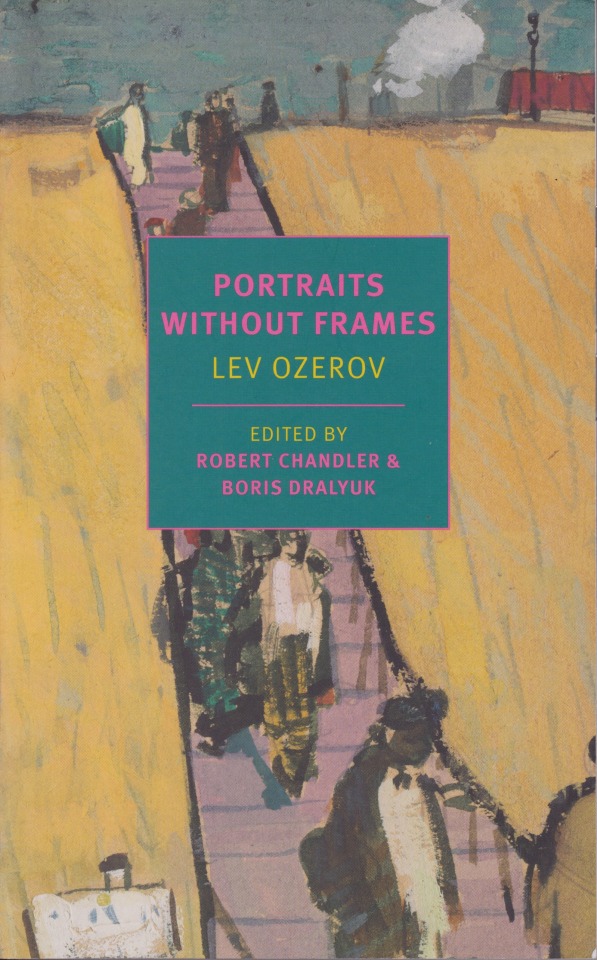
VARLAM TIKHONOVICH SHALAMOV
Forward and to one side, like a knight on a chessboard, with a knapsack on his back, Varlam Shalamov plods on, battered by Kolyma. Lonely, almost sullen, he has the air of a sad Russian peasant, or scholar, or writer whom life has stung hard, whom life has pressed down on but not yet utterly crushed. Deep in his soul there is still strength, still the will to fight fate. His wrinkled face is a hieroglyph of all he has lived through and does not speak about. It’s a cold day. We go into a café. Not much to eat there, but at least it’s warm. “Varlam Tikhonovich, read me some new poems.” He turns one ear towards me. Without a word he takes off his rough, wind-battered knapsack. Inside it, a wooden spoon hobnobs with crusts of bread, notebooks, and documents— death, after all, can creep up on you any moment. He reads slowly, separating each word: each word ready to drop into the abyss. Getting the words out is easier with pauses for breath. “Thank you,” I say. “No, it’s for me to thank you. Who nowadays asks anyone to read poems?” he says hoarsely, with feeling. “I’ve got an awful lot of them. How am I to choose?” He reads at random jumping from page to page, whatever catches his eye. Reading aloud, he warms up. “All right. Enough of that.” Someone brings coffee, sausages, bread. Steam rises from our cups; steam rises from our plates: the renowned fragrance of a Moscow people’s café. Shalamov tries not to eat too quickly, not to show that he is very hungry. I don’t ask about Kolyma, and he doesn’t mention it: as if it hadn’t happened. As he eats the bread, he holds one hand just below his chin. Crumbs fall into his palm. Shalamov eats them greedily, with particular relish. His long experience of malnutrition is apparent. This mouth accustomed to hunger opens slowly, mistrustfully, almost unwillingly, as if in shame. Shalamov eats in silence, with tried and tested deliberateness, with meaning, with pauses, and to me he seems not to be thinking about food. What is Shalamov thinking about? How am I to know? He returns his notebook to his knapsack. Out we both go into the winter outside “It’s a cold day,” I say. “What do you mean?” he says. “It’s warm.”
***
MIKHAIL ZOSHCHENKO (excerpt)
How does it start— the mad day, the made life of a writer? What whim, what overwhelming force presses a pen into some poor fellow’s hand and leads him down through all of Dante’s twisting circles?
***
PERETZ MARKISH
Once you’d seen him, you could say you’d seen Byron: honor, dignity, stature, a melancholy beauty. He’d raise his head and, with half-closed eyes, recite his poems as if he were singing. He wrote his own Childe Harold, his own Don Juan, his own Beppo. His sin, his one and only sin: that he wrote in Yiddish. He could express himself only in Yiddish. He could express himself only in Yiddish. For this, he was jailed. For this alone, executed. Everyone knew, but it wasn’t done to say it out loud, to spell it out in black and white. It was said and written: He died. Just went and died. Just went and died, you see. Why get people upset?
In the province we call Volhynia lies a village we call Polonne. That’s his childhood, that’s his grandfather Shimshon-Ber, that’s his cheder. And after that, he was chorister, tutor, day laborer, worker at the vineyards, army private, and office clerk. But he didn’t like calculating, he liked the immeasurable; on the flip side of banking documents poems began to appear. This dreamer’s distant gaze was focused not on the faces of clients but on the Galaxy. Later, he said in passing, “While you clutch a grass-blade, I hold up the Earth, the planet vast and blue. Immensity is what attracts me, but your grass-blade is a part of it too.”
We didn’t see each other for a long time. Then I saw him on a canvas by Alexander Labas. There, there he is— Markish, who was built for a long life, imagining his last hour. There is a touch of sunset in the dawn blaze. The light melts into a dark that allows no return.
His widow is making inquiries about her husband, about his notebooks and manuscripts, confiscated when he was arrested. His widow walks down the long corridors of the seventh floor— corridors her soul had walked long before. She had endured much: a waiting room, a small window where relatives could hand in parcels of food and clothes for a prisoner. But now she is here by invitation. Courteous and charming, General Borisoglebsky addresses her: “You can probably guess why I’ve called you here.” “No. Tell me.” “I am able to inform you that your husband has been rehabilitated.” “Where is he?” The general’s reply is ready and waiting, planed and polished: “He was executed by enemies of the people.” And he offers Markish’s widow a glass of water, also ready and waiting. “I want to read his case file.” “But you are not a lawyer.” “Where is my husband’s grave?” “He has none. . .”
More time passed. Another telephone call: “This is the KGB, finance department. It seems we owe you a little money.” “What do you mean? You’ve already returned me the money I tried to send to my husband but which he never received.” Pause. An in-breath. An out-breath. “We owe you for the teeth.” “What teeth?” “The gold crowns.” In a voice not her own, the widow let out a wild scream. Neighbors ran out into the hallway and caught her, as she collapsed in a faint. She was pale now and silent. While the telephone receiver on its twisted cord groped the wall, swinging like a pendulum, counting off our godforsaken time.
***
ARAM ILYICH KHACHATURIAN
Free time for whims is what makes age alluring; the aging Khachaturian grew to like touring: Rome—Paris—London—Berlin. He conducted, shook hands, represented the state, gave many an interview, enjoyed his fame through and through. Glory, after all is glorious; he lapped up bravos; the glitter of concert halls held him in thrall. Glad of each chance to further his own fame, he paid his respects to the pope and von Karajan, Stravinsky and Britten, the Dalai Lama, the Queen. He was photographed with them, or rather—they with him. Some photos were like ads, others more personal. Best of all were the snapshots of handshakes: hands coupled, heads bent forward. In his Moscow apartment, with its sliding doors, he treated guests to Armenian wine, Mutakh cheese, a few grapes, and these photos— expecting rapt exclamations. His albums, his apartment walls were adorned with every major celebrity. The only one missing was Salvador Dalí. He must visit Dalí! Must see Dalí! Must be photographed with Dalí! Otherwise both the collection and his own fame would be incomplete. Dalí gave his consent. A date was set for a meeting in a remote castle, At the time agreed, Khachaturian and his assistant, his assistant’s assistant, and his photographer, a friend and this friend’s daughter— a budding artist— approached the castle. A truly ancient castle! But in order to enter it you had to cross a wide swath of swampland. No other way: no footbridges, no guards to assist them. Mud splattered their dress shoes and best clothing; dispirited and exhausted, they crossed the swamp. The gates clanged open; they entered the empty vastness of the ancient castle, akin to a planetarium or crematorium. The silence continued. The guests stood in a stupor. This was insane! Suddenly, in all its wild frenzy, the “Sabre Dance” was unleashed. It was like bolts of lightning! Crossed sabres rang out struck each other, recoiled, parted, flashed again, clanged again. It was spectacular! The music’s proud composer managed a smile: this was, after all, in his honor. He was distracted, however, by the sight of his Angelo Litrico shoes, gleaming new only the day before but now encrusted with mud. The “Sabre Dance” drew to an end. After a meaningful pause, Salvador Dalí himself appeared, riding a dark horse, dressed like Don Quixote, carrying a spear, of course, but without Sancho Panza. He rode three victory laps, respectfully stopping beside his shivering guests. Through half-closed eyes he looked down at everyone with benevolent condescension: a look full of meaning. Then, thrice brandishing his spear, he withdrew so abruptly that the photographer was unable to recollect what he was meant to be doing there. A prerecorded message boomed a polite “Arrivederci”; the lights went out, the wayfarers exited. “Ouch!” groaned the photographer. “Argh!” growled the assistant. Khachaturian stayed silent. Once again they trudged through the surrounding mud, but I said enough about that as I described their approach to the castle of the ingenious Salvador.
It is said that this episode cooled the composer’s ardor: he went less often on tour to dodgy venues.
1 note
·
View note
Text
Vrteška života
VRTESKA ŽIVOTA Autor: Ivan Vanja Borisoglebski Uvez: Meki Izdavac: Art Rabic

View On WordPress
0 notes
Video
youtube
Varvara Kutuzova/Nikita Borisoglebsky/#Antivirusmarathon ( Issue 11)😀YAAY! VARVARA KUTUZOFF🌞👍🔥
0 notes
Text
Russia. Borisoglebsky. Borisoglebsky Monastery. Gate and church of Saint Sergius Борисоглебский. Ростовский Борисоглебский монастырь. Ворота и Сергиевская надвратная церковь
#2011#autumn#borisoglebsky#september#борисоглебский#борисоглебский монастырь#ворота#осень#сентябрь#сергиевская надвратная церковь#Borisoglebsky Monastery#church of Saint Sergius#gate#church#церковь#монастырь#monastery#Russia#Yaroslavl Oblast#Россия#Ярославская область#крепость#fortress#Canon#Canon EOS 550D#flickr#russian tumblr#русский tumblr
13 notes
·
View notes
Photo

Julieanne Harris
Les Lutins Music by Henryk Wieniawski and Antonio Bazzini. Choreography by Johan Kobborg Performed by Marina Minoiu, Dmitry Zagrebin, Viacheslav Lopatin; violin: Nikita Borisoglebsky; piano: Liudmila Sveshnikova
3 notes
·
View notes
Photo

Church of Andrew Stratilat, 1825, Andreevskoe village in the League, Borisoglebsky district, Yaroslavl region, Russia. Церковь Андрея Стратилата , 1825, село Андреевское на Лиге , Борисоглебский район , Ярославская область, Россия. . . . #russia #ilovemycountry #russian_fotolovers #russiandiary # travel #фотодляроссии #фотопрогулка . #russian_img #russia_pics #instarussia #sony #ЦерковьАдреяСтратилата #рпцонлайн #TatiKozlova #kozlovatat #kozlivatatiana . #russianchurch #православие #hystory #culture #историческоенаследие
#фотопрогулка#церковьадреястратилата#ilovemycountry#рпцонлайн#tatikozlova#kozlivatatiana#фотодляроссии#russian_img#russia#kozlovatat#russianchurch#culture#russiandiary#hystory#russian_fotolovers#instarussia#russia_pics#православие#sony#историческоенаследие
0 notes
Text
Non classé http://ift.tt/2nUvPu7 drone surprend un couple nu faire l’amour
Lorsque ce couple a décidé de faire l’amour au dessus d’un clocher, il ne s’attendait pas à être dérangé en plein ébats par un drone venu faire des repérages.
L’histoire ou plutôt le clocher en question se trouve à monastère de Borisoglebsky, à Tver. Un couple était tranquillement en train de faire l’amour lorsqu’un drone qui rodait dans les parages est venu les déranger.
D’où l’importance de bien faire attention quand on fait ce genre de chose.
Cet article un drone surprend un couple nu faire l’amour est apparu en premier sur Drone-Radiocommande.com.
from un drone surprend un couple nu faire l’amour
0 notes
Photo

57.278315°N, 39.191047°E Borisoglebsky district, Yaroslavl oblast, Russia photo by Anigma — These are the remains of a church dedicated to Sts. Florus and Laurus, who according to legend were twin stonemasons martyred in the 2nd century — specifically, they were thrown down a well as retribution after they smashed up a pagan temple. O bitter irony
28 notes
·
View notes




